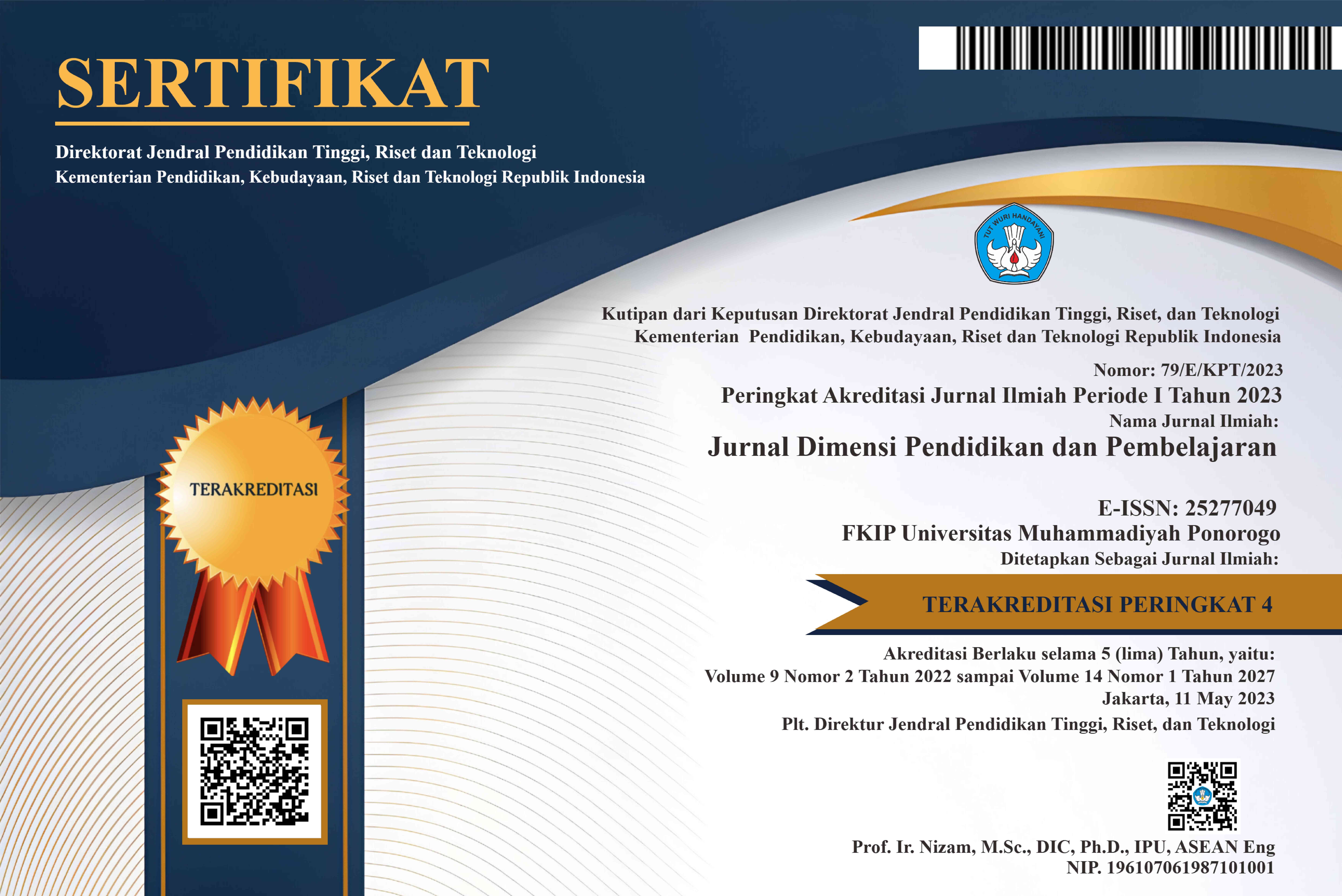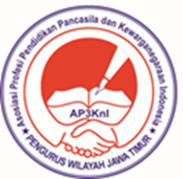STUDENTS’ PERCEPTION OF THE USE OF STORYTELLING TECHNIQUE TO IMPROVE VOCABULARY SKILL
DOI:
https://doi.org/10.24269/dpp.v6i2.1013Abstract The main objective of the research is to find out whether story telling technique can improve vocabulary skill or not. The descriptive quantitative method was employed in this research. The samples of the research were business management of MBIS-W41/15 which consists of twenty one students. To collect the data, the writer used questionnaire to know the students’ perception with storytelling technique and vocabulary test to know whether the final test score of the students have a significant progress or not. Storytelling technique deliver a good method to support,moyivate, and encourage knowledge. It can be seen that students were encouraged to be actively and motivately in learning process. Based on the reserach finding, it can be conclude that storytelling technique can improve vocabulary skill and give good atmosphere in teaching learning process. Using storytelling students more interesting and understanding new words. They can work together and share idea to encourage new knowledge which discuss in topic of their lesson. It is good applying story telling to improve students’ vocabulary
Downloads
Published
2018-08-11
Issue
Section
Artikel
License
Copyright
Authors who publish their manuscripts in this journal agree to the following terms:
- The copyright on each article belongs to the author.
- The author acknowledges that Jurnal Dimensi Pendidikan dan Pembelajaran has the right to be the first to publish under a Creative Commons Attribution 4.0 International (Attribution 4.0 International CC BY 4.0) license.
- Authors may submit articles separately, arranging for the non-exclusive distribution of manuscripts that have been published in this journal to other versions (e.g., sent to the author's institutional repository, publication into books, etc.), acknowledging that the manuscript was first published in the Jurnal Dimensi Pendidikan dan Pembelajaran.
Â
License
Use of the article will be governed by the Creative Commons Attribution license as currently published under the Creative Commons Attribution 4.0 International License (Attribution 4.0 International (CC BY 4.0).
Â
This license permits anyone to copy and redistribute this material in any form or format, compose, modify, and make derivatives of this material for any purpose, including commercial purposes, as long as they give credit to the author for the original work.


_001.jpg)



